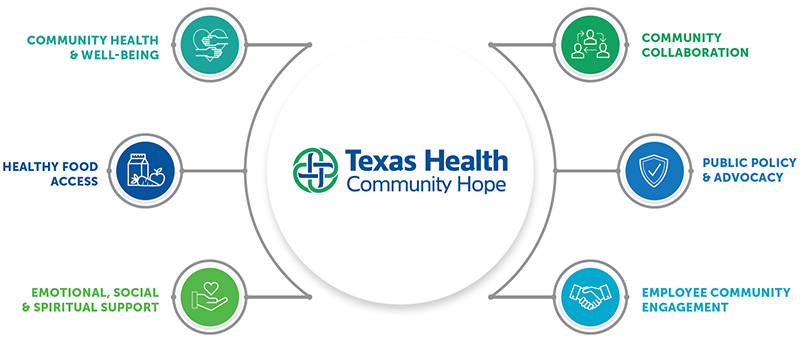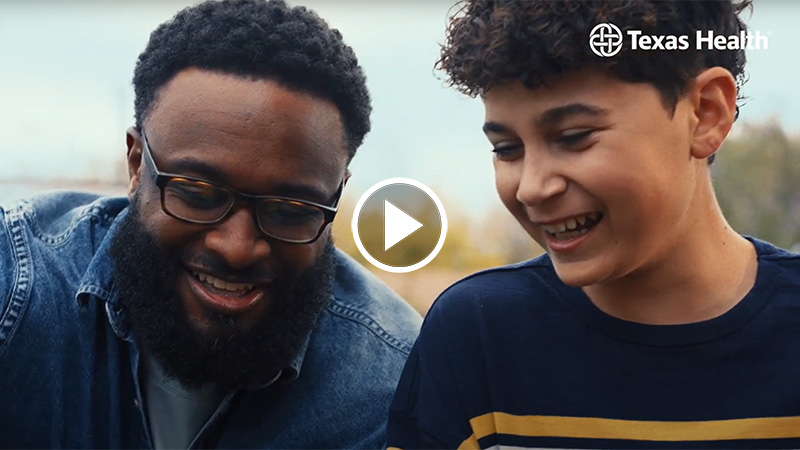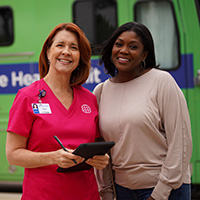Texas Health is committed to delivering support through programs and services that help lead to measurable, sustainable community improvements. We serve as a catalyst to transform lives by investing in the vision of a healthier future for our communities.
We believe where you live shouldn’t play a major role in your health and well-being. Texas Health Community Hope works to proactively address health disparities and the social and environmental conditions that affect overall health.

What Guides Us in the Community
Our ability to pave the way for North Texans to attain a high level of health is largely based on our ability to:
- Prioritize care needs in underserved populations
- Meet people where they work, live, play, and pray
- Facilitate respectful care for the whole person – body, mind and spirit
- Invest in innovative programs to address poor health outcomes
To transform health, we must work to transform healthcare in our communities. Through our commitment to innovative programs and initiatives, and collaboration with the community, Texas Health Community Hope seeks to address root causes of health disparities and outcomes. We will continue to strive to accomplish this as we collaborate with community leaders, and organizations, promoting a lifetime of holistic health and well-being.
Texas Health Community Hope Programs & Education
Texas Health Community Hope engages in a broad range of innovative programs, investments, and collaborations to make a difference in the community.








